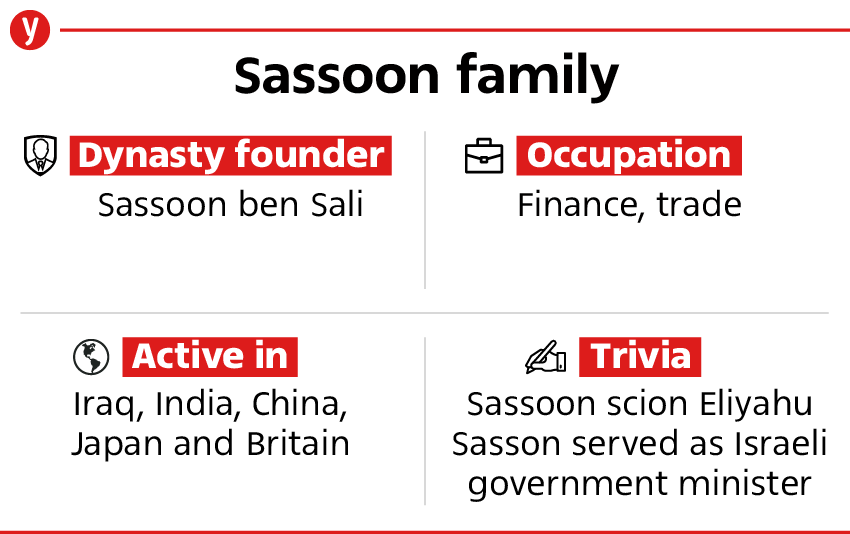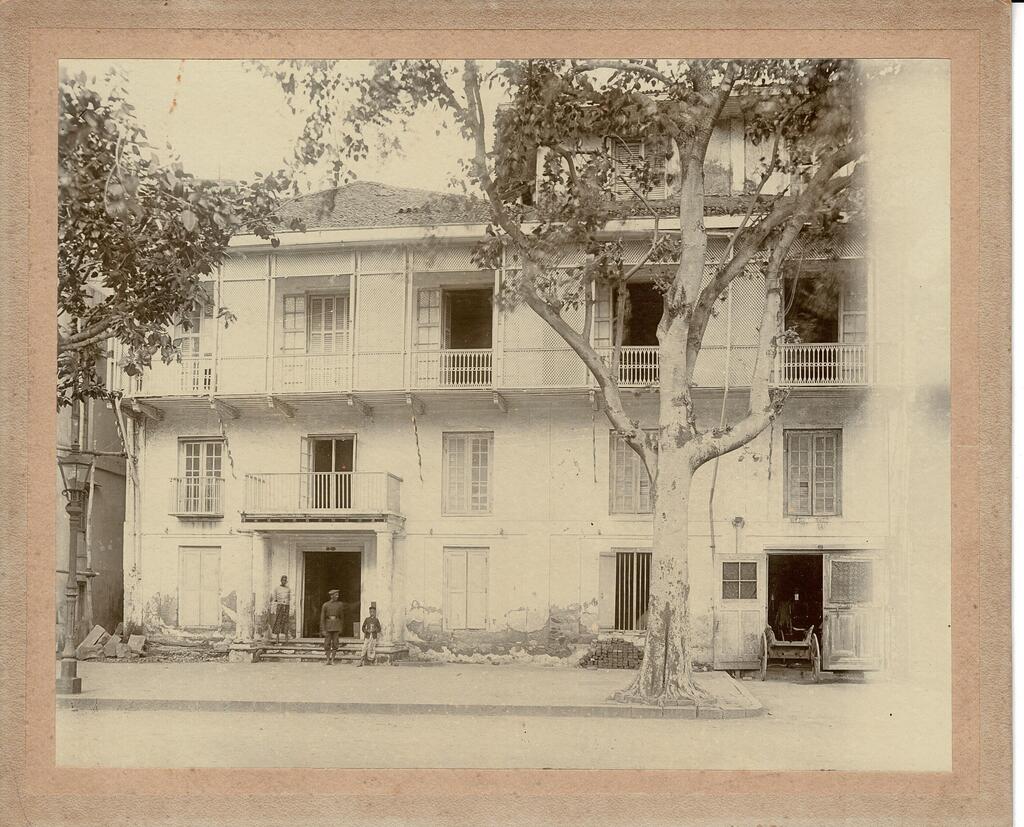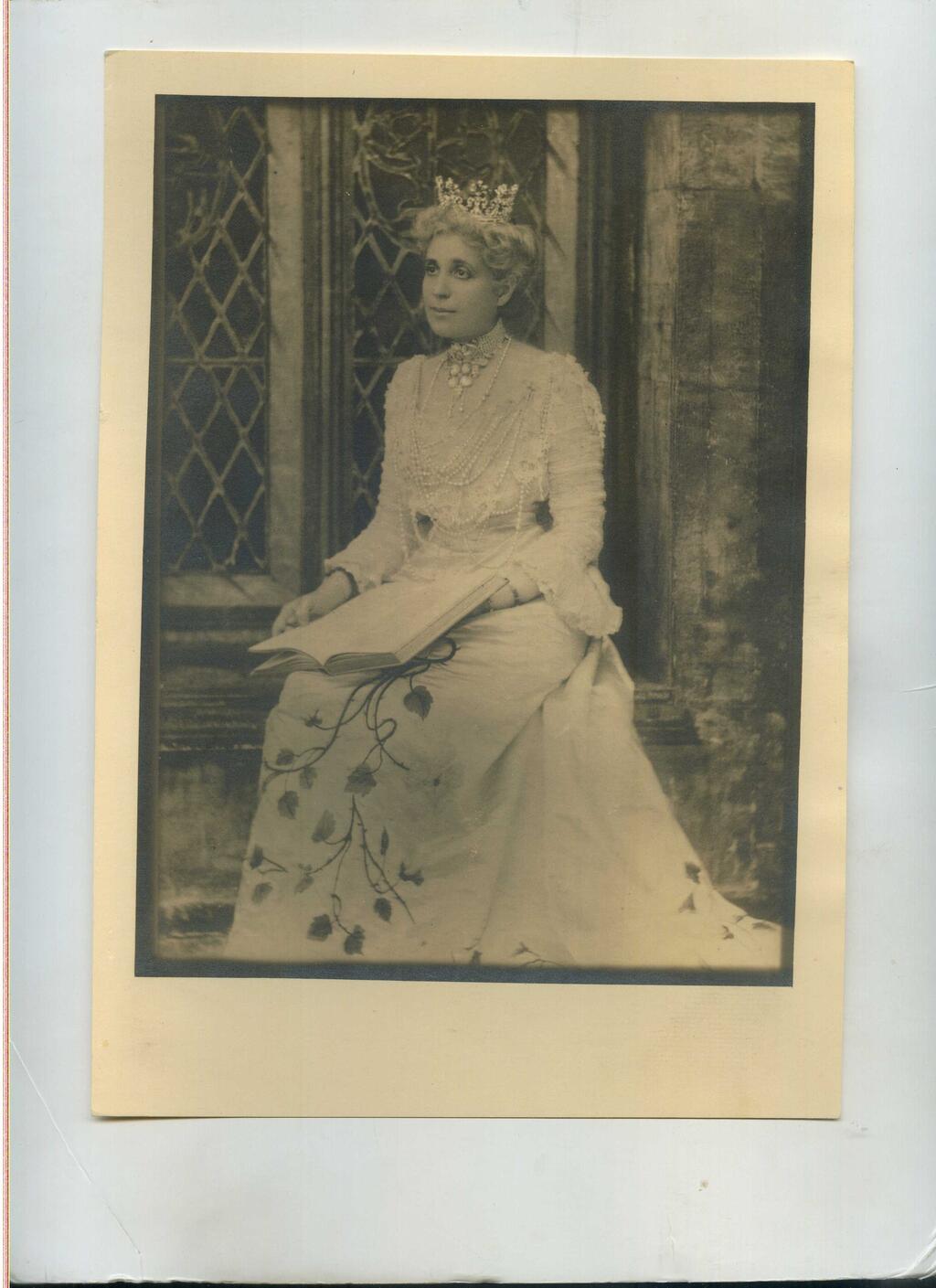The legends of the Jews of Baghdad building trading empires and their business success mainly originate from the tales of a handful of renowned families, notably the Sassoon family. Their exceptional ability to expand their business across three continents and into various fields rendered them legendary.

The history of the Sassoon dynasty commences in the late 1820s when David Sassoon fled from Ottoman Baghdad to Iran. David, the son of Sheikh Sassoon bin Salih, was the former treasurer of the city's pasha and renowned as "the most important Jew in Baghdad". Furthermore, he served as the president of the Jews of Iraq.
7 View gallery
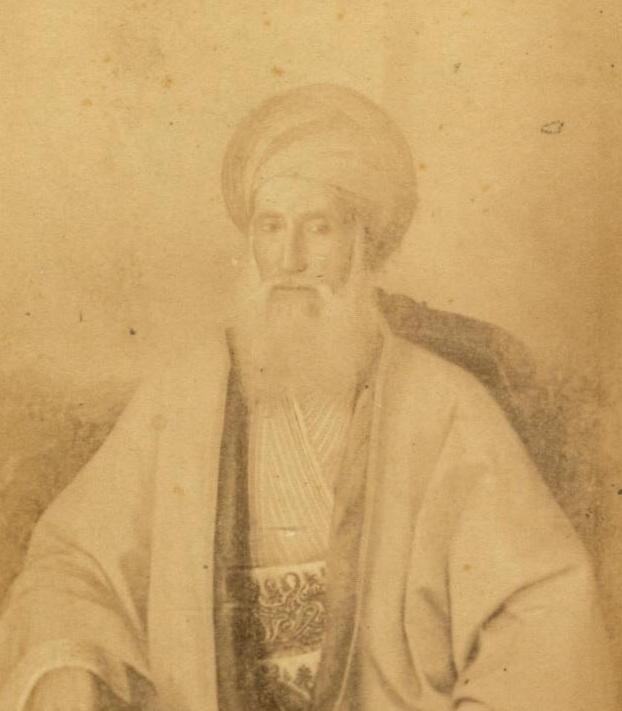

David Sassoon the first - founder of the family business
(Photo: Photo: Ohel David Sassoon Institute)
The father and son fell victim to an abduction orchestrated by Dawud Pasha, the governor of Baghdad, renowned for his brutality and corruption. The father was overthrown by Pasha in 1821, and following his subsequent death in 1830, David, who was already involved in his father's banking ventures and community leadership, perceived it as a signal to explore new territories.
He chose Bombay, India as his next destination and used the business acumen he had gained from his father and the networks he cultivated with merchant families across the Ottoman Empire and Iran.
Building bridges with the British government
David uncovered new opportunities and an ideal environment to nurture his business ventures in Bombay. The era also presented a chance to expand his family, as David fathered 14 children with two women, headed by Abdullah and Elias who would prove crucial to the family's economic expansion into China and India.
According to Joseph Sassoon - a professor of history and politics at Georgetown University, and a distant relative of the Sassoon family who wrote a book about their life - the family's business prowess did not solely stem from Mumbai's flourishing cotton and opium trade.
The Jewish community felt secure under the favorable dispositions of both the Indian and British governments, enabling unrestricted trade. This was supported by the Sassoons' esteemed reputation, deemed an invaluable asset to their enterprise.
David's work ethic and adaptability played a vital role in his accomplishments. Despite his mastery of Hebrew, Arabic, Persian, and Turkish, he still put in the effort to learn the local tongue.
David also familiarized himself with cotton brokers and traders, staying abreast of evolving economic circumstances that could impact pricing. This combined mix of skills helped David to effectively steer his enterprise with a strong family vision for sustained business prosperity.
Opium empire
Little by little, David forged reliable and enduring business connections, built on a foundation of trust and reliability. His initial triumph emerged in textiles, attained only after a decade of experience and dedicated effort, firmly establishing his standing within the Arab-Jewish trade guild.
7 View gallery
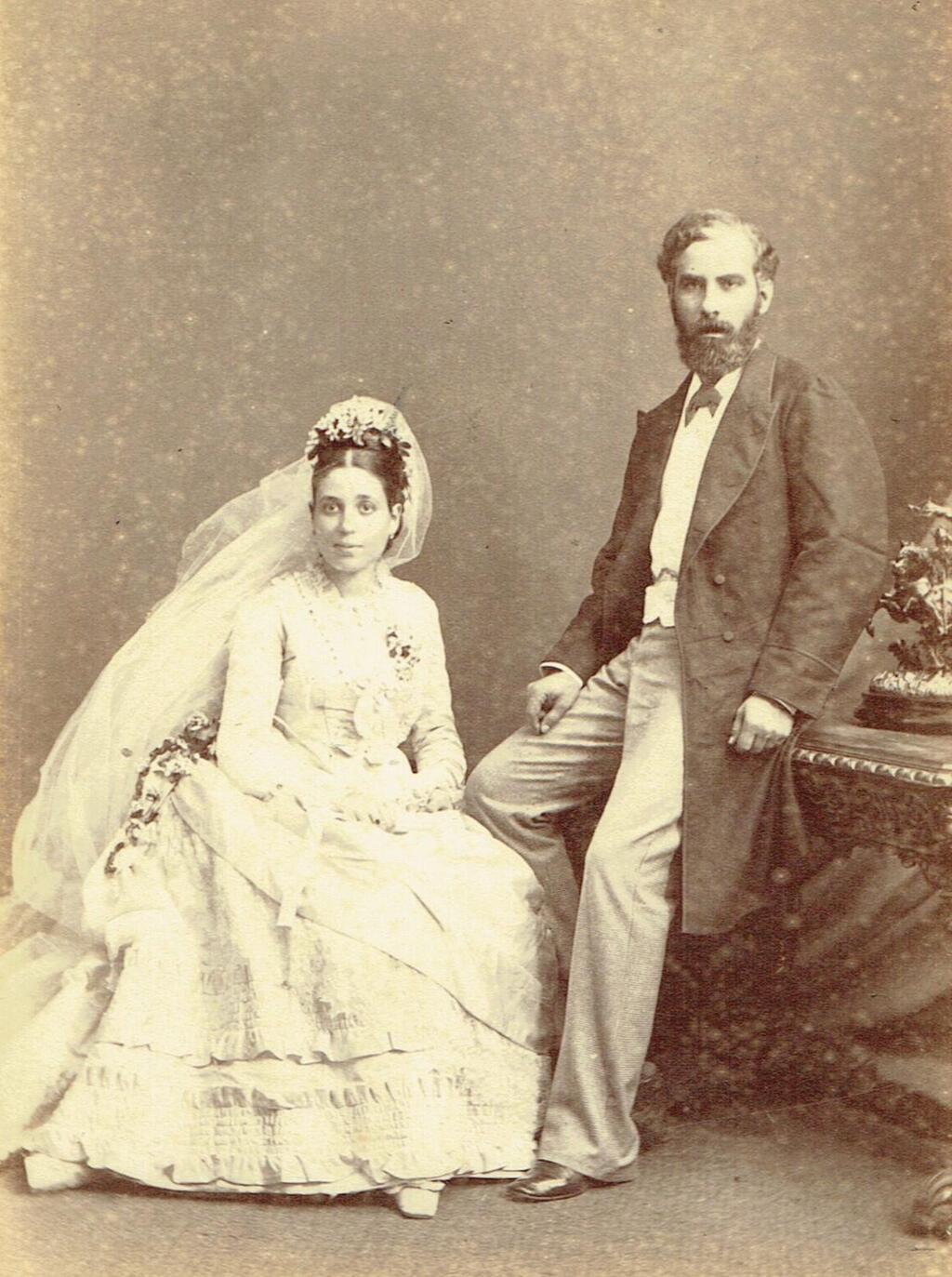

Sliman and Farha Sassoon on the day of their wedding
(Photo: Ohel David Sassoon Institute)
David operated with utmost consideration of the British Empire's interests, mindful of steering clear of potential conflicts. Along the way, his two sons Abdullah and Elias later came aboard to contribute to the family's business endeavors.
David entered the opium trade which served as the financial cornerstone for his family enterprise towards the close of the 19th century. His business gained steam following the First Opium War between 1839-1842, wherein Britain obstructed China's attempts to bar the drug's inflow into the country.
David astutely recognized the opening, expertly establishing himself as a key exporter of opium from India to China in the subsequent years, overriding stiff competition from established market merchants in the field. The family's transnational operations yielded localized branches known as the "Bombay House" or "Shanghai House", overseen by David's sons.
In Prof. Sassoon's account, the Sassoon dynasty was inexorably linked to the vexed narrative of opium for almost eight decades, with control over the trade in India and China being instrumental in the family's fortunes and authority towards the close of the 19th century.
Who'll be in charge of the family business?
Dr. Limor Kattan, a researcher at the Babylonian Jewry Heritage Center, wrote her dissertation on "The Architecture of the Synagogues of the Baghdad Community in India Founded in the 19th Century" (the Hebrew University of Jerusalem, 2020).
During her research, she came across the work of the Sassoon family. Drawing from the books of Avraham Ben-Yaakov on Babylonian Jewry, Kattan highlights that David Sassoon was a devout Jew who made it a priority to pray regularly in a synagogue, and he insisted that all his children receive a Jewish education and wear traditional Iraqi clothing.
He made it a point to observe the Jewish Sabbath and holidays, refraining from work on Saturdays and Jewish holidays, as well as on Sundays, which are designated days of rest in Bombay. He also ensured that his business operations halted during prayer times. Additionally, in the early days of the company he owned, offices, branches, and stores were closed on these days. Furthermore, he instilled in his sons the values and skills necessary to become successful businessmen.
When he passed away in 1864 at the age of 72 in his Pune home and left a will that designated his son Abdullah as the heir. Despite Elias's contributions to the success and development of the China business, he was only briefly mentioned in the will. David's children were asked to honor and obey his firstborn. Dr. Kattan notes that the will included a stipulation that his children and grandchildren marry Jewish women from Baghdad and continue to pray in Orthodox synagogues.
The Sassoons discover London
David's will triggered a dispute within the family, resulting in the business splitting into two factions within three years. Abdullah continued to run David Sassoon & Co. with a combination of risk-taking and innovation—per Prof. Sassoon's assessment—while Elias ran A.D. Sassoon & Co., which survived even after his death at 60 years old in 1880.
Despite surviving the decline in the cotton market and economic crisis in India in the mid-1860s, both companies thrived and continued to build wealth throughout the economic slowdown in London at the end of the century.
This success was due in part to David Sassoon's wise investments in real estate, insurance, and banking. Abdullah followed in his father's footsteps and even expanded the business with new investments, making sure to maintain a close relationship with the British police, as his father had done.
In recognition of his achievements, he received knighthood in 1872 and was named Sir Albert. Queen Victoria bestowed upon him the title of baron in 1890, making him the first Jewish recipient of London's Medal of Freedom one year later.
He relocated his headquarters to London in 1874, a crucial international trading hub of that time. He purchased an impressive mansion in Ashley Park that showcased the family's great wealth and ambitions, as noted by Prof. Sassoon.
While establishing himself at the pinnacle of London's financial world, he also secured a place in the upper echelons of British society. He was known for organizing impressive events and gatherings, such as the one held in honor of the Iranian Shah, who visited London in the late 1890s, at a hall Abdullah rented at the Empire Theater.
Abdullah passed away in 1896 after leading David Sassoon & Co. for three decades, which were referred to as the company's "golden age".
His brothers Reuben and Arthur shared their love for horse racing, shooting, and hunting with the royal family, particularly with Queen Victoria's son, the then Prince of Wales. They frequented the lively parties hosted at Arthur's Scottish estate and enjoyed themselves thoroughly. Reuben served as the prince's unofficial gambling agent and occasionally "managed his assets", as well.
In 1894, Suleiman, who was responsible for managing the majority of the family's global businesses, passed away. In his place, his 38-year-old wife, Farha, an assertive woman and mother of his three children, took over management of the company, while also dedicating time to studying the Torah and Talmud.
Abdullah was a firm believer in Farha's ability to modernize and expand the business and supported her appointment. Farha went down in history as the first woman to successfully manage an international business.
An inside coup
Abdullah's death in 1896 interrupted what Prof. Sassoon calls Farha's "unstoppable bulldozer". In 1901, her successful career came to an abrupt halt when her brothers-in-law staged a coup against her, resulting in her firing or resignation.
7 View gallery
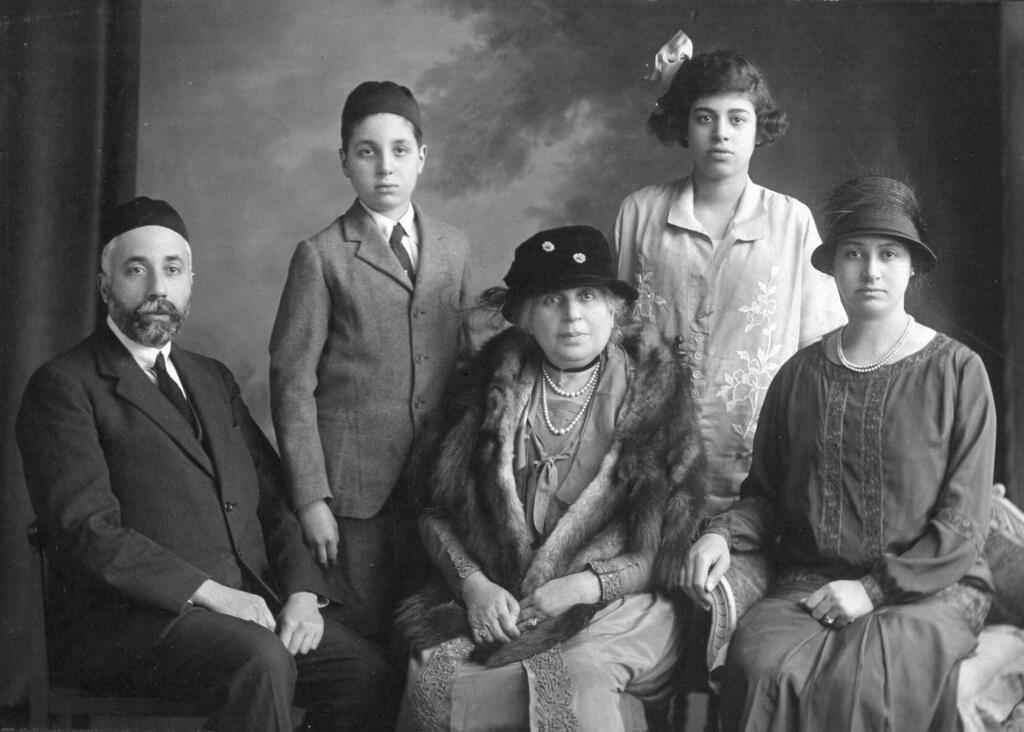

From left to right: David, Farha and Selina Sasson; standing: their children Sliman and Farha
(Photo: Photo: Ohel David Sassoon Institute)
Despite her undeniable talents, Farha claimed that her gender and status as a mother made it unacceptable for her to run a business. Meanwhile, her brothers-in-law did not want to be replaced in their positions.
After the events that led to her dismissal, she left for England with her children. Until her death in 1936, she was a prominent member of the Jewish community. Her removal from the company had reverberations within the business community, as some claimed that the business suffered after she left.
Meanwhile, Elias managed the company which primarily dealt with banking and real estate. Its base in China was in Shanghai, where Elias was a central figure in the small and close-knit Jewish community. According to Dr. Kattan, "he was the main person responsible for preserving the identity of the Baghdadi Jews in Shanghai."
Elias led prayers, followed kosher practices, and observed Shabbat and holidays by closing his business. After his death in 1880, his eldest son Jacob took over and established new factories, expanding the cotton industry. Jacob also recruited Jewish and Indian workers from Baghdad to work in the factories.
The party always has to end
Following Abdullah's time, the company began declining. Revenues from opium sales began to plummet in the late 1990s due to the agreement of Great Britain, India, and China in 1907 to ban the cultivation and export of opium within a decade.
Prof. Sassoon explains that "The members of the Sassoon family did not adequately hedge their investments. The family should have divested from the drug trade sooner, for both business and ethical reasons. Staying in the game until the last box was sold was a poor decision."
According to Dr. Kattan, the death of the first and second generations of the Sassoon family resulted in the depletion of their wealth due to heavy debts in Britain and the division of assets among many children and their spouses.
However, some members of the family, such as Victor Sassoon, were able to continue to build their wealth by establishing new ventures in India and China through the E.D. Sassoon company. Victor also made significant contributions in England, India, and the Bahamas, and was knighted in 1947 by the British Empire.
Unfortunately, Victor passed away single in 1961, and his company was eventually bought by foreign companies. As of 1978, the name Sassoon was no longer present in world records of trade, banking, and finance.
David Sassoon and Co. were overcome by complacency, a lack of innovation, and an inability to plan for the long term. They failed to break free from their dependence on the opium trade and did not properly manage their taxes. Unfortunately, this attitude was also perpetuated in future generations of the family. Most family members were eager to extract capital from the company to finance their lifestyles instead of actively involving themselves in the business,” Prof. Sassoon concludes.
Charity enterprise
Charitable works and philanthropy were integral to the Sassoon family's business. Records of their business dealings reveal that a quarter of all trade was recorded as a donation to charitable causes.
In Bombay, David Sassoon established schools and synagogues that expressed their British identity through the Western-style architecture of the buildings, as Dr. Kattan explains.
The Sassoon family's philanthropic endeavors extended to numerous charitable organizations, Torah schools, and relief funds, and even included the establishment of a hospital and clinic in Pune.
Elias Sassoon's donations were bequeathed to his sons and grandsons, some of whom received decorations and insignias from the British Empire.
During World War II, Victor Sassoon, Elias' grandson who successfully managed the family's company in China, along with wealthy Baghdadi Jews, generously contributed to the British war effort and the absorption of over twenty thousand Jewish refugees from Central Europe who had arrived in Shanghai.
The family also made significant contributions to their Zionist and religious institutions in the Land of Israel, including regularly supporting the Jewish settlement in Hebron in the 1920s, as Dr. Kattan explains.
According to Dr. Kattan, the Sassoon family's philanthropic efforts and loyalty to the British Empire transformed their identity from an Arab-Jewish one to a British-Jewish one.
As a result of his services to the Empire, David Sassoon was granted British citizenship in 1853, despite the irony that he signed his declaration of loyalty to Queen Victoria in Hebrew.
What's left of the golden years?
Rabbi Natan Sliman is a prominent descendant of the Sassoon family who carries on their legacy. He resides in Jerusalem and serves as the head of the Ohel David Sassoon Institute, which aims to document and preserve the work of David Sassoon while also serving as a research institute to bridge the heritage of the past with future generations.
7 View gallery
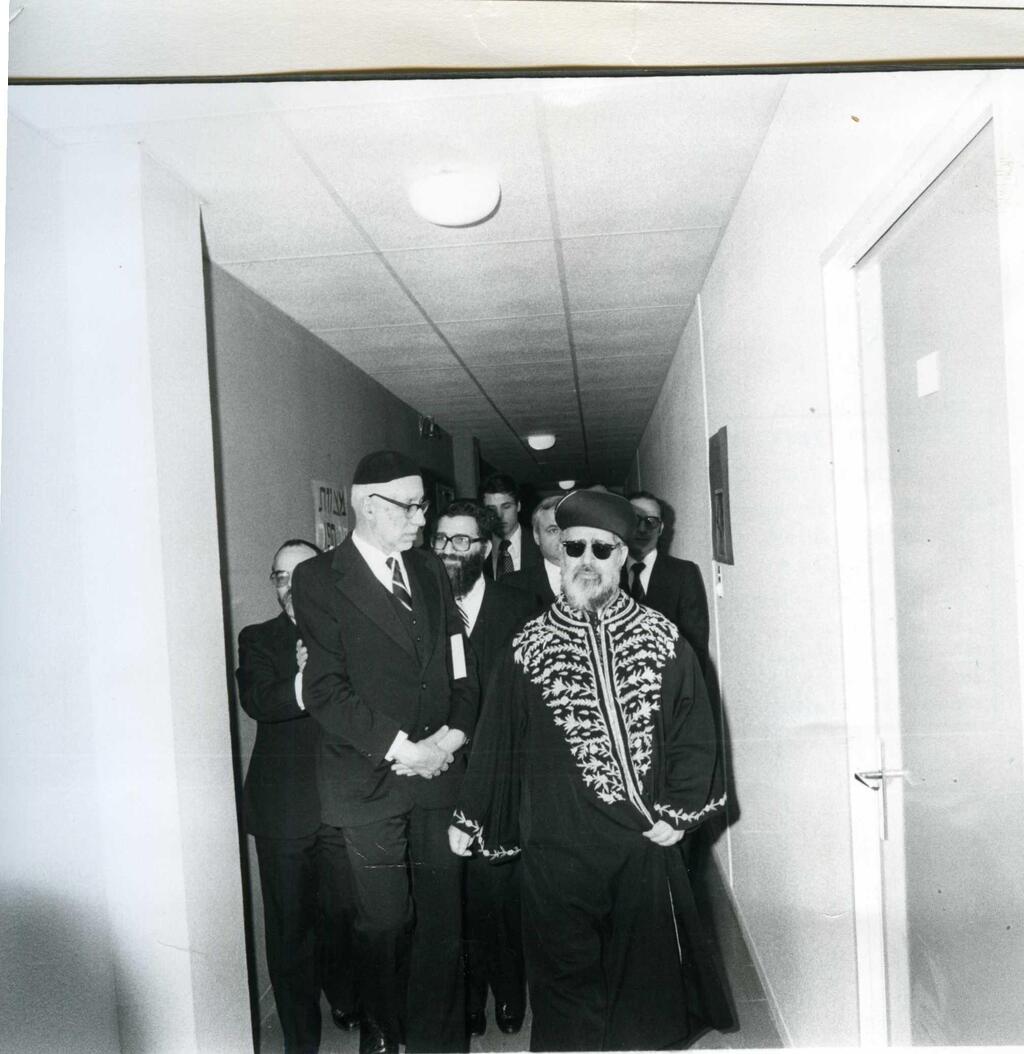

Rabbi Sliman Sasson and former Israel Chief Rabbi Ovadia Yosef during a trip to France
(Photo: Ohel David Sassoon Institute)
His grandfather was the grandson of Farha Sassoon, who passed away in 1936. His eighty-year-old father also resides in Jerusalem, and he proudly notes that his father is the third David in the family lineage, while his son is the fourth David at the young age of twenty-three.
Farha had three children: Mazal Tov, Rachel, and David. Unfortunately, Mazal Tov passed away at a young age, while Rachel married but remained childless. David Sassoon, who died in 1942, had two children: Sliman and Farha whose grandchildren currently reside in Israel, London, and the United States.
Rabbi Sassoon recently learned that a street in Jerusalem will be named after Farha Sassoon, a significant moment for the family. Despite not always being treated with respect, Farha sets an example of humility and consideration that embodies her greatness.
According to a story passed down in the family, Farha once helped a family member who had given her trouble, saying "It is our custom to suffer and be silent." This act of kindness demonstrates her virtue, regardless of religious or personal differences. These qualities are what the family aims to preserve and pass down through the generations, reflecting the legacy that was left for them to uphold.
"As a descendant of this family, I consider it both a privilege and a duty to carry on our traditions from previous generations. It is important to utilize the tools that have been passed down to us to create a positive impact for the future. At our institute, we strive to assist the people of Israel, while our family remains actively engaged in public service by supporting various organizations and individuals," he says.



